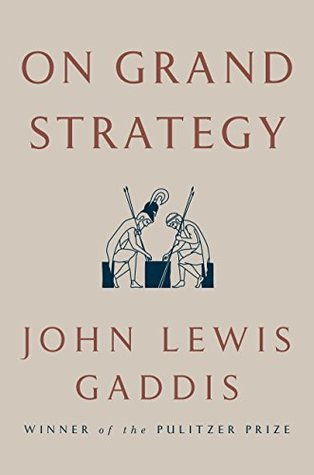More on this book
Community
Kindle Notes & Highlights
I take this to mean continuing adjustments of “intellect”—which sets courses—to “temperament”—which determines how they’re pursued.
Why don’t you ever see tightrope walkers without long poles? It’s because they’re stabilizers, as critical to the reaching of destinations as the steps taken toward them. And yet, the poles work by feel, not thought: focusing on them risks falling. Temperament functions similarly, I think, in strategy. It’s not a compass—that’s intellect. But it is a gyroscope: an inner ear complementing Clausewitz’s “inward eye.” Like poles on tightropes, temperament makes the difference between slips and safe arrivals.
Octavian rose by teaching himself self-control; Antony sank by forgetting it. Augustine and Machiavelli bequeathed the heavy and light hands with which Philip and Elizabeth shaped different new worlds.
Which extends Fitzgerald’s “first-rate intelligence” to holding opposites in behavior as well as in mind. Which circles back to Tetlock’s view of “good judgment” as a “balancing act” that requires “rethinking core assumptions” while “preserving our existing worldview.”42 Or, in simpler terms, but at all altitudes, applying common sense.
One offered freedom from the need to make choices by yielding them to some higher authority, whether a collective, a party, a state, an ideology, or even a theory.
Berlin called the first “positive liberty,” but not as a compliment: that liberty, if carried to extremes, led to tyranny—removing contradictions by silencing them. The second, “negative liberty,” cultivated contradictions, even cacophonies: without a compass, though, it could produce drift, parochialism, and ultimately anarchy.
Positive liberty required no proofs beyond what theory provided, for if ends were compatible, means would automatically converge.
Negative liberty expected neither compatibility nor convergence, but valued experience, subjecting theory to its corrections.
not all praiseworthy things are simultaneously possible. And that learning to live within that condition—let’s call it history—requires adaptation to incompatibles.
This is what Clausewitz meant by subordinating “war” to “policy,” for what freedom could come from total violence? It’s what Augustine sought by seeking to make wars “just.” And it’s what Sun Tzu, with uncharacteristic gentleness, acknowledged: that “while an angered man may again be happy, and a resentful man again be pleased, a state that has perished cannot be restored, nor can the dead be brought back to life.”
The contradiction between the living and the dead is the greatest we’ll ever hold, in mind or in spirit, whatever the “present” within which we function. All at either end of that tightrope—well, almost all—deserve respect.


